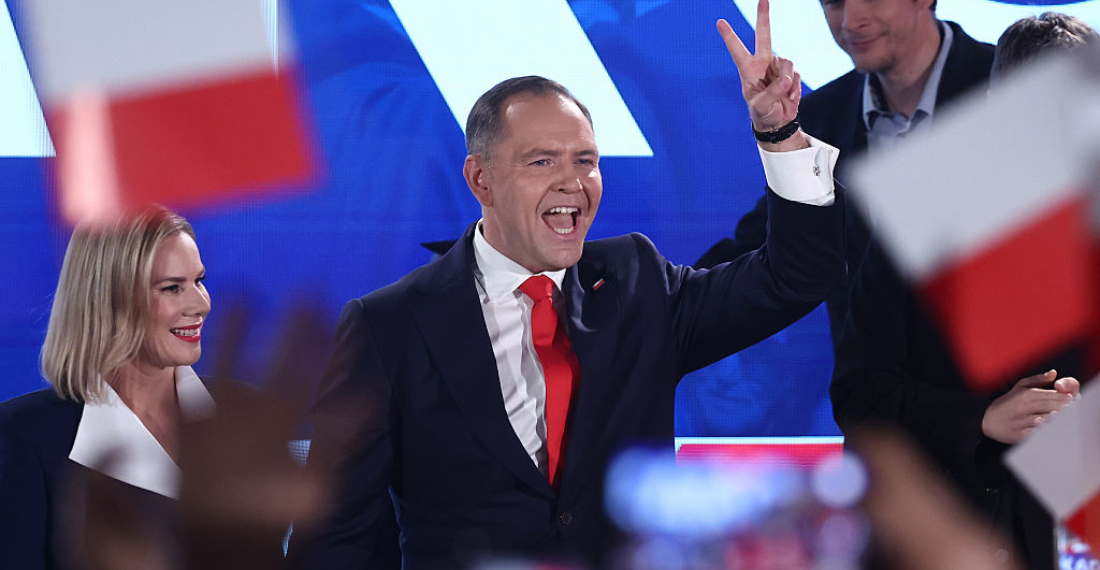In Poland, every vote really counts. The election turned out to be an unprecedented neck-and-neck race. Conservative nationalist Karol Nawrocki won the knife-edge presidential election. With all votes counted, the politician, who is affiliated with the opposition Law and Justice (PiS) party, has been declared the winner by the Polish electoral commission.
Exit polls had initially suggested that the race was too close to call between Nawrocki and his opponent, the pro-European Rafał Trzaskowski, a member of the Civic Platform (PO) party of the current prime minister, Donald Tusk. Initially, Trzaskowski seemed to be ahead in the exit polls and claimed victory. However, subsequent polls indicated that the race was very close, with Nawrocki even holding a slight lead.
Ultimately, Nawrocki emerged victorious, securing 50.89 per cent of the vote, while Trzaskowski remained at 49.11 per cent. Turnout was almost 72 per cent — a historic high for presidential elections.
This is a setback for Tusk.
Nawrocki's victory represents a significant setback for the government of Prime Minister Tusk. During his campaign, Trzaskowski had said that he wanted to help Tusk achieve his ambitions. Now, however, Tusk will once again have a critical president, as he has had in recent years under Andrzej Duda. The president has veto power in Poland, which allows them to block legislation.







